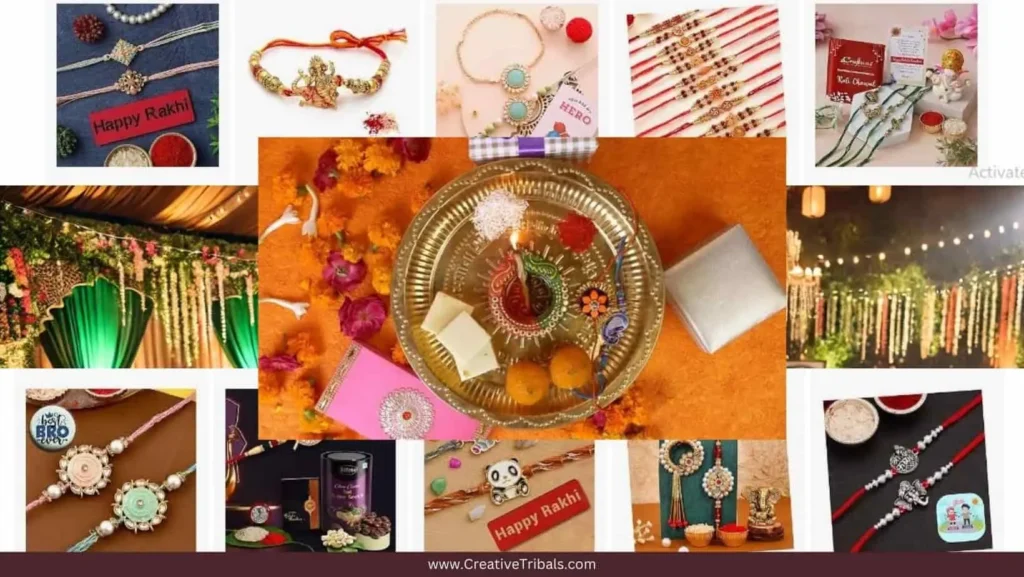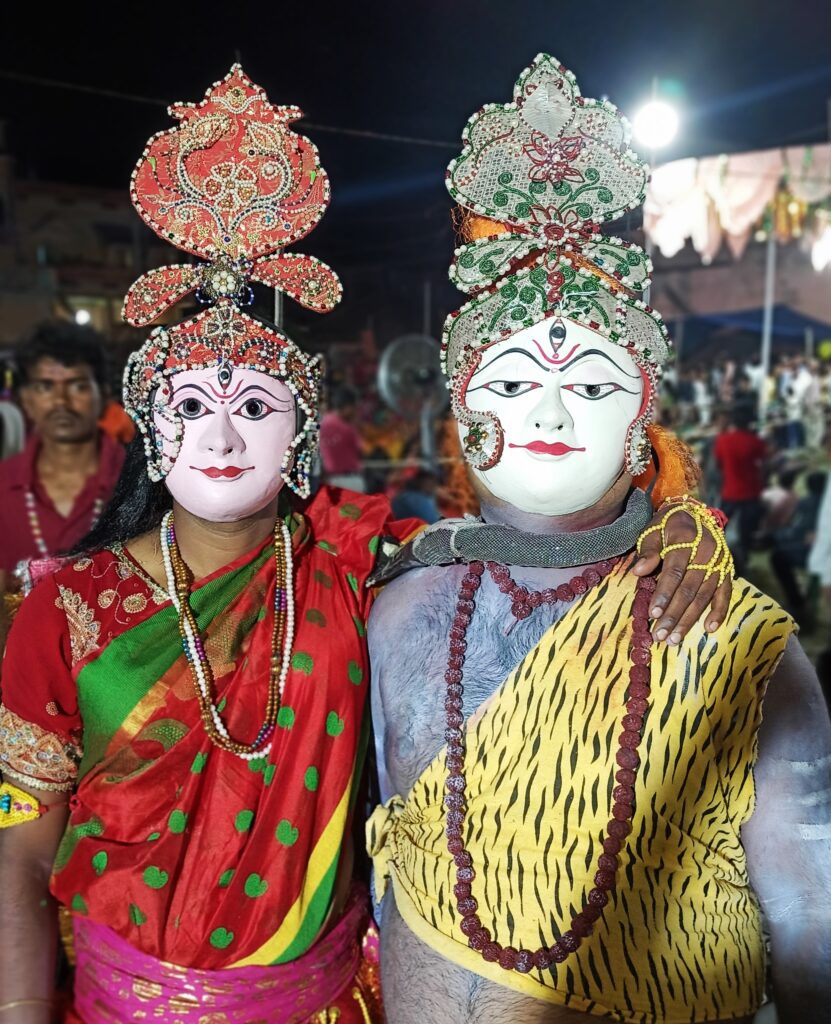
Introduction to Raksha Bandhan
Historical Significance
Raksha Bandhan, also known as Rakhi, is an ancient Hindu festival that celebrates the bond between brothers and sisters. This year, Rakhi will be celebrated on 19th August 2024. The term “Raksha Bandhan” translates to “the bond of protection.” Historically, this festival finds mentions in ancient scriptures and mythological stories, illustrating its longstanding cultural relevance. The tradition is believed to have originated from the epic Mahabharata, where Draupadi tied a piece of her sari around Krishna’s wrist as a token of gratitude, which he accepted as a bond of protection.
Cultural Importance
In Indian culture, Raksha Bandhan transcends just the familial bond and symbolizes the broader themes of duty, protection, and mutual respect. It underscores the importance of siblings in maintaining family harmony and the social fabric. Across India, the festival is marked by familial gatherings, where sisters tie a rakhi (sacred thread) on their brothers’ wrists, and brothers pledge to protect their sisters. This ritual fosters love, care, and a sense of responsibility among siblings.
Etymology of Raksha Bandhan
The term “Raksha Bandhan” is derived from Sanskrit, where “Raksha” means protection and “Bandhan” signifies a bond. Thus, the festival epitomizes a promise of protection. This bond is not limited to blood relations alone but extends to any relationship that resembles a sibling-like camaraderie, including cousins and close friends who consider each other as siblings.


Raksha Bandhan Celebrations
Traditional Rituals
Raksha Bandhan is celebrated with elaborate rituals that begin with a prayer for the well-being of the brother. Sisters prepare a thali (plate) with a rakhi, rice grains, sweets, and a diya (lamp). They perform an aarti (a devotional ceremony), apply a tilak (a mark) on their brothers’ foreheads, and then tie the rakhi around their wrists, wishing them happiness and protection. Brothers reciprocate with gifts and a promise to protect their sisters.
Modern Adaptations
In contemporary times, Raksha Bandhan has seen various adaptations. With changing lifestyles and geographical distances, virtual celebrations have become common. Siblings send rakhis and gifts via courier or e-commerce platforms, maintaining the essence of the festival even when physically apart. Moreover, social media and video calls allow for real-time sharing of this joyous occasion, bridging the gap between traditional rituals and modern technology.
Regional Variations
Raksha Bandhan is celebrated differently across India’s diverse regions. In Maharashtra, it coincides with Narali Purnima, marking the beginning of the fishing season. In West Bengal and Odisha, it is observed as Jhulan Purnima, dedicated to Lord Krishna and Radha. Each region adds its unique flavor to the celebration, enriching the festival’s cultural tapestry.
The Rakhi: Symbol of Bond
Types of Rakhis
Rakhis come in various forms, from simple threads to intricately designed ones adorned with beads, stones, and even precious metals. Traditional rakhis are made of silk threads woven with zari (gold or silver thread), while modern rakhis may feature cartoon characters, personalized messages, or themes catering to the recipient’s interests.
Making of Rakhi
The crafting of rakhi is an art in itself. Artisans and craftspersons create rakhis using a variety of materials such as silk, cotton, and synthetic fibers. The process involves designing, dyeing, threading, and decorating. Each rakhi is a work of art, reflecting the cultural richness and creative ingenuity of its maker.
Rakhi Thali
A Rakhi Thali is a decorated plate used during the Raksha Bandhan ceremony. It typically contains the rakhi, roli (red powder), rice grains, a diya, and sweets. The thali is often artistically adorned with flowers and other decorative items, symbolizing the festive spirit and the auspiciousness of the occasion.
Stories and Legends
Mythological Stories
Raksha Bandhan is steeped in mythology, with numerous stories highlighting its significance. One such tale is of Indra and Indrani, where Indrani tied a sacred thread around Indra’s wrist before he went to battle, ensuring his victory. Another popular legend is of King Bali and Goddess Lakshmi, where Lakshmi tied a rakhi to Bali, leading to the tradition of brothers inviting sisters for the celebration.
Historical Accounts
Historical records also shed light on Raksha Bandhan. During the Mughal era, Rani Karnavati of Chittor sent a rakhi to Emperor Humayun, seeking protection from invaders. Humayun honored the rakhi and came to her aid, underscoring the festival’s power to transcend religious and political boundaries.
Contemporary Stories
In modern times, Raksha Bandhan continues to inspire stories of unity and protection. It is not uncommon to hear tales of siblings going to great lengths to fulfill their promises of protection and support, reinforcing the timeless values embedded in the festival.
Gifts and Tokens of Love
Traditional Gifts
Traditionally, brothers give gifts to their sisters as a token of their love and commitment. These gifts can range from sweets and clothes to jewelry and money. The choice of gift often reflects the brother’s desire to make his sister feel cherished and appreciated.
Modern Gift Ideas
With changing times, gift ideas have also evolved. Gadgets, fashion accessories, and gift vouchers have become popular choices. Personalized gifts, such as custom-made jewelry, photo albums, and tailored hampers, add a special touch to the celebration, making it memorable.
Personalized Gifts
Personalized gifts hold a unique place in Raksha Bandhan celebrations. Customized rakhis, engraved with names or special messages, bespoke gifts that reflect shared memories, and handmade items crafted with love add a personal and emotional dimension to the festival.
Raksha Bandhan and Women Empowerment
Celebrating Sisters’ Achievements
Raksha Bandhan is also an opportunity to celebrate the achievements of sisters. It highlights their strengths, talents, and contributions to the family and society. Acknowledging and appreciating these achievements during the festival reinforces the importance of gender equality and empowerment.
Rakhi Tying by Women for Women
In recent years, there has been a growing trend of women tying rakhis to other women, symbolizing mutual protection and support. This practice reflects the evolving nature of the festival and its adaptability to contemporary values of equality and solidarity.
Raksha Bandhan in the Workplace
Raksha Bandhan has also found a place in the corporate world, where colleagues celebrate the festival by tying rakhis to one another. This fosters a sense of camaraderie and team spirit, enhancing workplace relationships and promoting a supportive work environment.
Eco-Friendly Raksha Bandhan
Sustainable Rakhi
With growing awareness of environmental sustainability, eco-friendly rakhis made from natural materials like seeds, organic cotton, and recycled paper have gained popularity. These rakhis not only symbolize protection but also a commitment to protecting the environment.
Eco-Friendly Gifts
Eco-conscious gifts, such as reusable products, organic skincare items, and handmade crafts, are thoughtful options that align with the principles of sustainability. Choosing eco-friendly gifts reflects a dedication to a greener planet and encourages others to adopt sustainable practices.
Green Celebrations
Celebrating Raksha Bandhan in an eco-friendly manner involves reducing waste, using biodegradable decorations, and opting for digital invitations. These practices ensure that the festivities are joyous and environmentally responsible, setting a positive example for future generations.
Global Celebrations
Raksha Bandhan in India
In India, Raksha Bandhan is celebrated with immense enthusiasm and joy. Families come together, sweets are exchanged, and the air is filled with festive cheer. Each region adds its unique touch to the celebrations, creating a rich and diverse cultural mosaic.
Celebrations Abroad
Raksha Bandhan is also celebrated by the Indian diaspora across the globe. From the United States to Australia, Indian communities organize gatherings and events to keep the tradition alive. These celebrations foster a sense of cultural identity and continuity, even far from home.
Rakhi and Global Brotherhood
The essence of Raksha Bandhan, which is protection and love, resonates universally. In some places, the festival has transcended its Indian origins and is celebrated as a symbol of universal brotherhood and harmony, reflecting its inclusive and unifying spirit.
FAQs About Raksha Bandhan
Origin and History
Raksha Bandhan has ancient roots in Indian history, with references in scriptures and mythological tales. It has evolved over centuries, adapting to changing times while preserving its core values of protection and affection.
Significance Today
Today, Raksha Bandhan is not just a traditional festival but a celebration of the enduring bond between siblings. It highlights the values of love, duty, and respect, which are essential in maintaining familial and social harmony.
Common Traditions and Practices
Traditional practices include tying the rakhi, performing aarti, and exchanging gifts. Each family may have its unique customs, but the underlying theme of love and protection remains constant.
Rakhi Tying Etiquette
The rakhi is usually tied on the right wrist of the brother. The sister then applies a tilak on his forehead and performs an aarti. It is a solemn and joyous occasion, reflecting the deep bond between siblings.
Unique Ways to Celebrate
Modern celebrations can include virtual rakhi tying, sending digital greetings, and organizing online family gatherings. These innovations ensure that the spirit of Raksha Bandhan is kept alive, regardless of physical distances.
Future of Raksha Bandhan
The future of Raksha Bandhan looks promising, with new traditions blending seamlessly with old ones. As the festival continues to adapt and evolve, its core values of love, protection, and mutual respect will remain timeless.


Pingback: Raksha Bandhan: The Timeless Festival of Love, Protection, and Tradition - Blog Times